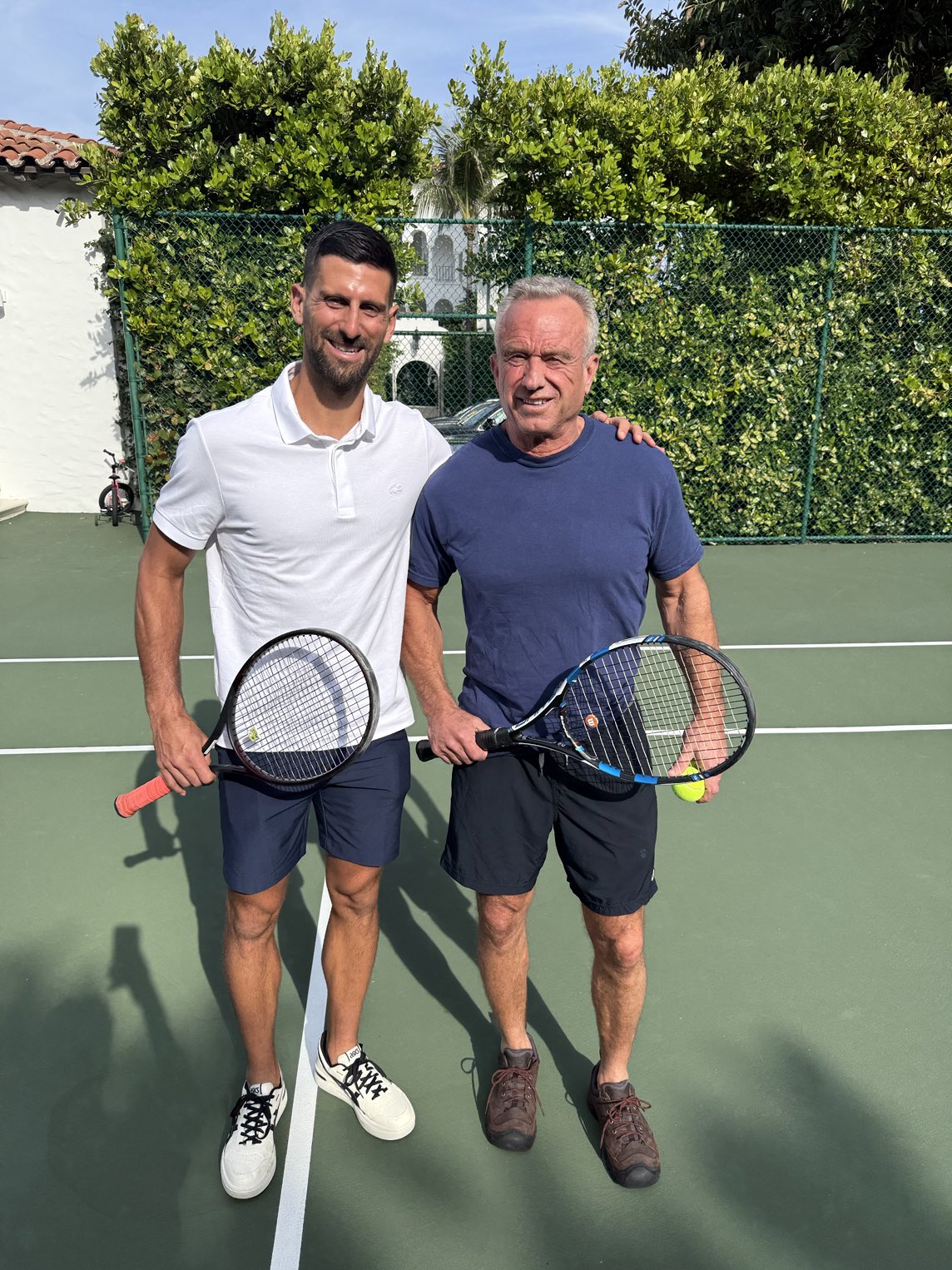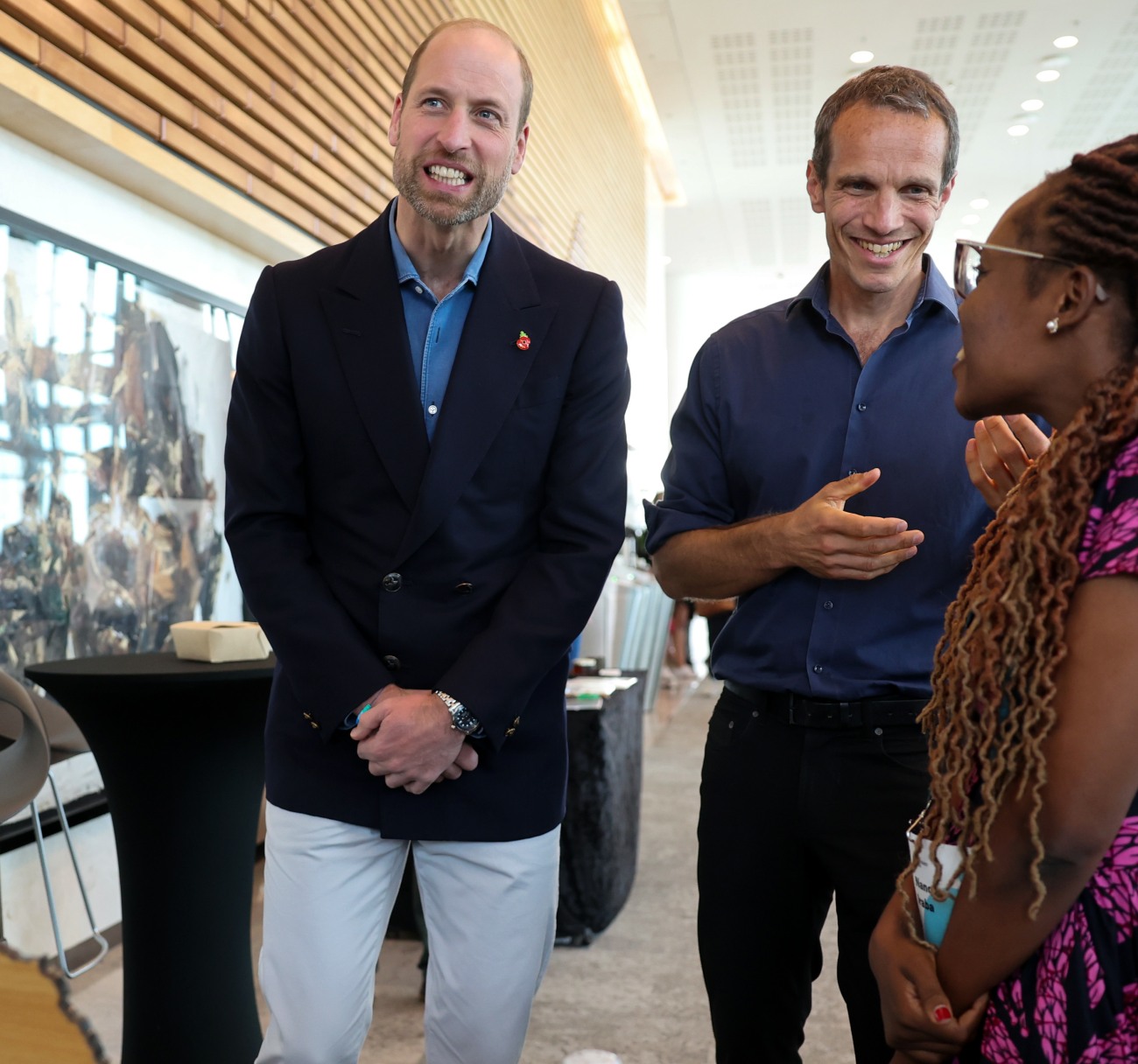ARTICLE AD
UPDATE: A New York prosecutor told jurors that Donald Trump‘s hush money trial was “about a criminal conspiracy and a cover up,” part of an effort to influence the outcome of the 2016 presidential election.
Assistant District Attorney Matthew Colangelo’s opening statement sought to elevate the criminal charges against Trump as no mere white-collar misdeed, but something that had an impact on the direction of the country.
“No politician wants bad press, but the evidence at trial will show that this was not spin or communication strategy. This was a planned, coordinated ongoing conspiracy to influence the 2016 election,” Colangelo said.
More to come.
PREVIOUSLY: Donald Trump arrived at a Manhattan courthouse this morning, where he will sit and watch as prosecutors and defense attorneys deliver opening statements to a jury in an unprecedented scene.
This is the first criminal trial of a former president, readily apparent with the metal barricades and patrol by dozens of uniformed officers around the courthouse. During jury selection last week, there were scattered street demonstrations and one horrific act of suicidal protest that was seemingly directed at random political and economic forces.
Dozens of reporters and a smaller group of spectators had to pass through two layers of security screening and metal detectors — in the lobby, and again on the 15th floor.
On the upper floor, shortly before 9:30 a.m., the crowd chatting and sorting themselves into two lines suddenly fell silent: down the hall, Trump had just arrived, and stopped to address the pool reporters stationed outside the courtroom.
Trump called the trial a “witch hunt,” while repeating previous claims that the legal proceedings are being orchestrated by the Biden administration. As this is a state case, there is no evidence that the president directed his rival’s prosecution.
Trump also groused about the status of a civil judgment against him, his attorneys argue in a separate proceeding today that a $175 million bond is sufficient collateral on a $464 million judgment against him. That bond is required as Trump appeals the judgment.
“It’s a very very sad day in America, I can tell you that,” Trump said.
Hours earlier, a handful of television reporters stationed outside the courthouse delivered early stand-ups in front of camera lights against a nighttime backdrop of partially lit buildings in lower Manhattan. Professional line-sitters hired by news organizations said they arrived at 10 p.m. Sunday to hold places for reporters not already on a list of reserved seats either in the 15th-floor courtroom where the trial is taking place or a nearby overflow room with a video feed of the proceedings.
TV and audio coverage is restricted in the courtroom, leaving networks to rely on their reporters to give regular updates. Some broadcast networks planned special reports, adding to coverage throughout the day on cable news channels. With the absence of cameras, CNN planned a live text feed of the proceedings on one side of the screen.
Inside the courthouse last week, lawyers sparred over motions and evidence, and would-be jurors aired a variety of opinions, not all of them negative, about Trump as he looked on. More than half of the nearly 200 Manhattanites who passed through Judge Juan Merchan’s courtroom last week said they could not set aside their feelings about the former president to judge him fairly and impartially. They were quickly excused.
A handful were let go after defense lawyers found social media posts under their names that mocked or criticized Trump. The exits underlined the challenge of seating 12 jurors and 6 alternates acceptable to all parties, since, as one excused juror told reporters, “We all have prior opinions about the defendant.”

In a case shorthanded as the “hush money trial,” Trump faces 34 counts of falsifying business records in order to conceal payments to the adult film performer Stormy Daniels ahead of the 2016 presidential election in order to buy her silence about an alleged affair with Trump. That allegedly was part of an ongoing “catch and kill” operation to “identify, purchase, and bury negative information” about the 2016 Republican presidential nominee “and boost his electoral prospects,” according to a statement of facts that the Manhattan District Attorney, Alvin Bragg, submitted alongside the indictment handed down by a grand jury last April.
Prosecutors said that at Trump’s direction, his longtime lawyer and fixer Michael Cohen wired $130,000 to Daniels to stay quiet. “This payment was illegal,” prosecutors said. Trump then reimbursed Cohen, claiming the expense as a legal retainer fee, prosecutors said, describing a “scheme” that broke state business laws and violated election laws.
Prosecutors are expected to call Cohen as a witness, noting that he has already pleaded guilty in a federal case tied to the same secret payment and served time in prison.
Trump has previously denied having an affair with Daniels or being aware of the payment Cohen made to her. He has used his arrivals and departures from the courtroom to criticize the case as a political “witch hunt” and rail at the judge to reporters and cameras stationed in the hallway. Pool reporters last week also keyed on Trump’s behavior inside the courtroom, where he appeared to nod off more than once, and was heard muttering something in the direction of one potential juror — a reaction that drew a swift rebuke from the judge.
After opening statements, prosecutors have lined up a key participant in the long-running catch and kill operation, former tabloid news executive David Pecker, as their first witness, The New York Times reported. As then-CEO of American Media, Pecker, a Trump supporter, published stories in the National Enquirer lauding Trump in the run-up to the election. According to prosecutors, Pecker buried the more unsavory stories including a former Playboy magazines playmate’s tale of an affair with the real estate businessman and reality show star turned political figure.

Judge Merchan has ruled that prosecutors can tell jurors some details about the former president’s conduct toward women, but he’s also set limits on how much.
Jury selection proceeded with little of the carnival atmosphere outside the courthouse that Trump’s first court appearance last April generated. Pro- and anti-Trump protestors have been far fewer in number this time. But media coverage of the case remains intense. On Friday, a Florida man set himself on fire in the park across from the courthouse set aside for demonstrations, in view of a row of television crews.
Ted Johnson contributed to this report.

.png) 11 months ago
46
11 months ago
46 

